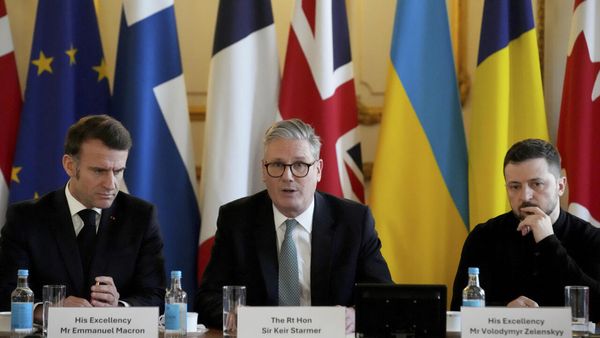
Ukrainian president Volodymyr Zelensky’s obvious impatience over Nato’s slow-moving decision-making process has reportedly irritated US officials enough that they reconsidered Ukraine’s invitation to join the alliance.
For months, Mr Zelensky has appealed to Nato leaders hoping they would accept his country’s application to join the alliance as they fight off Russian troops.
But Nato countries have been reluctant – not wanting to rock the boat too much with Russia during the middle of the war.
Then, after Nato countries failed to deliver a specific timeline to Mr Zelensky on Nato membership before the summit this week, Mr Zelensky’s frustration resulted in a more aggressive approach in the form of a tweet.
“It’s unprecedented and absurd when time frame is not set neither for the invitation nor for Ukraine’s membership. While at the same time vague wording about "conditions" is added even for inviting Ukraine. It seems there is no readiness neither to invite Ukraine to NATO nor to make it a member of the Alliance,” Mr Zelensky wrote on Tuesday.
“This means that a window of opportunity is being left to bargain Ukraine’s membership in NATO in negotiations with Russia. And for Russia, this means motivation to continue its terror.”
He added: “Uncertainty is weakness. And I will openly discuss this at the summit.”
Mr Zelensky’s strong message was a clear response to Nato’s unspecific and vague statement regarding Ukraine’s membership: “We will be in a position to extend an invitation to Ukraine when allies agree and conditions are met”
However the Ukrainian’s message to Nato leaders left US officials feeling particularly “furious”, a source familiar with the situation told The Washington Post.
Several US officials allegedly questioned whether the alliance should get rid of the passage which Mr Zelensky found “absurd”, The Post reported.
The US has already given Ukraine more than $75bn in assistance. Most recently the Pentagon announced that they had sent the controversial cluster munitions to assist in Ukraine’s fight against Russia.
Despite the hiccup, byy the end of the Nato summit on Wednesday, Mr Zelesnky had come to Nato’s accept decision calling it a “significant security victory” while still reiterating the preferred outcome would be an invitation to join Nato.







